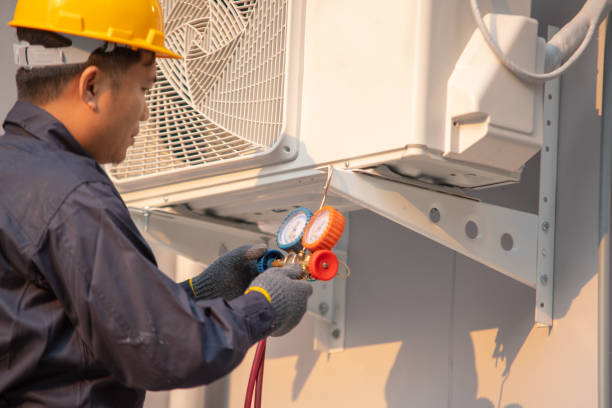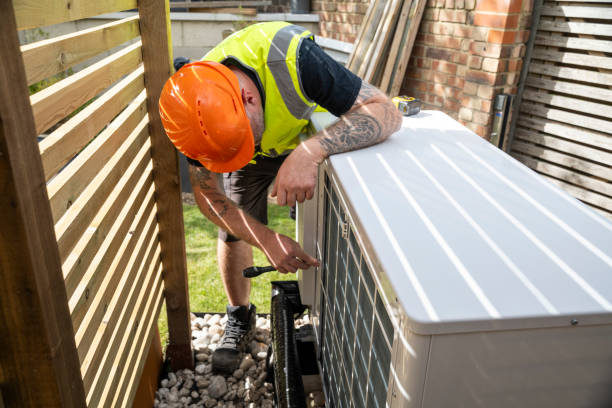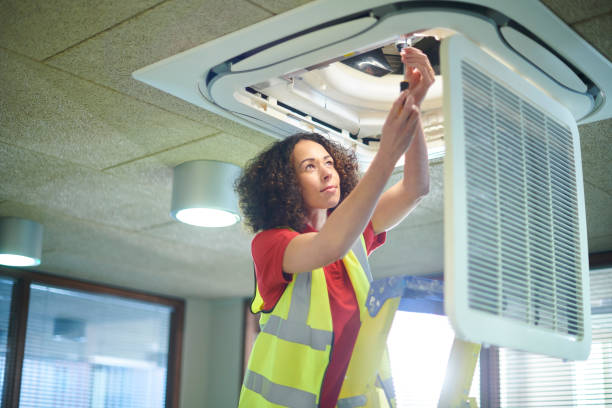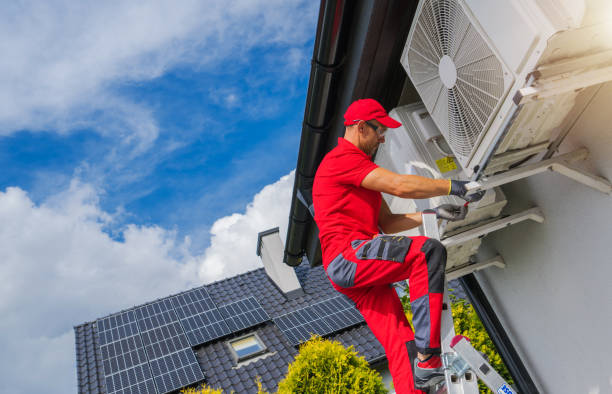Why HVAC is Better than AC?
Why HVAC Is Superior to AC, A Detailed Overview
The decision between standalone air conditioners (AC) and HVAC systems for controlling the temperature in your house may have a significant impact on comfort, efficiency, and overall value. At Cambridge Heating and Cooling, we recognize how crucial it is to choose wisely when it comes to your heating and cooling requirements. Being a top supplier of HVAC Services in Scarborough, we think that knowing the essential distinctions between AC and HVAC systems can help you make the greatest choice for your residence or place of company.
What Is an Air Conditioning Unit?
Overview and Constituents
HVAC is an acronym for air conditioning, ventilation, and heating. It’s a complete system made to offer comfortable indoor conditions all year round. Typical components of an HVAC system are:
Heating Unit: Usually a furnace or heat pump, this unit provides warmth throughout the winter months.
Cooling Unit: Typically, a central air conditioning unit, this unit provides cool air during hot seasons.
Ventilation: Moves stale air out of the system and ensures appropriate air exchange and quality.
Together, these elements provide a constant interior temperature, which makes HVAC systems adaptable and necessary for year-round comfort.
How Do HVAC Systems Operate?
The way an HVAC system works is by regulating the air quality, humidity, and temperature in your room. Here is a condensed explanation of how it works:
1. Heating Unit: Utilizing a furnace or heat pump, this unit warms the air before distributing it via the ducts.
2. Cooling Unit: Uses the same ductwork to distribute cooled air via a central air conditioning unit.
3. Ventilation: Maintains air quality by bringing in outside air and removing inside air.
The following are some advantages of HVAC systems:
Year-Round Comfort: One integrated system may provide both heating and cooling.
Energy Efficiency: Contemporary HVAC systems are built with energy-saving modes and programmable thermostats as standard features.
Improved Air Quality: Frequent ventilation improves interior air quality by removing allergies and contaminants.
Space Efficiency: By integrating heating and cooling into a single system, this approach conserves space and eases maintenance.
Comprehending Independent Air Conditioning
Types and Definitions
The sole purpose of standalone air conditioning systems is to provide cooling. They can take many different shapes, such as:
Window Units: Perfect for cooling single rooms, these units are small and mounted within a window frame.
Split Systems: Usually used for home conditioning, these systems comprise an outside compressor and an interior unit.
Portable Air Conditioners: Adjustable, movable devices that provide a variety of cooling options.
How Do Separate AC Units Operate?
The way standalone air conditioners work is by taking heat from the air within and releasing it outside. This is an overview of how they do business:
1. Evaporator Coil: Takes in heat from the air within.
2. Compressor: Forces the refrigerant to flow through the system by applying pressure.
3. Condenser Coil: Exhausts the heat that has been absorbed.
4. Blower Fan: Returns the room’s cool air circulation.
Advantages of Separate AC Units:
Economical: Generally, less expensive to buy and install than whole HVAC systems.
Ease of Installation: Installation doesn’t require significant house renovations.
Room-Specific Cooling: Perfect for area cooling or for cooling specific rooms.
Principal Distinctions Between AC and HVAC Systems
Full Functionality vs Single-Purpose
HVAC Systems: Provide ventilation, heating, and cooling all in one integrated system. They are appropriate for enhancing indoor air quality and preserving comfort throughout the year.
Stand-Alone Air Conditioners: Specifically engineered for cooling applications. They work best in places where the main heating system is supplemented by additional cooling or just cooling.
Energy Efficiency and Operating Costs
HVAC Systems: Because they can combine and optimize both heating and cooling tasks, HVAC systems are often more energy-efficient over the long term. They frequently have cutting-edge energy-saving devices as well.
Separate Air Conditioners: Even while they could be less expensive up front, isolated air conditioners might eventually use more energy, particularly when combined with independent heating systems.
Setup and Upkeep
Air Conditioning Systems: Installation is usually more involved and may demand for ducting adjustments and expert evaluation. Despite being routine, maintenance is simplified since it only affects one integrated system.
Standalone AC Units: Especially window or portable units, easier and less expensive to install. Separate systems, however, could necessitate separate maintenance efforts for every unit.
Space and Aesthetic Considerations
HVAC Systems: Usually located outside the house or in utility rooms, these systems have little visual influence on the living areas. Since they do not require separate components, they may be more space efficient.
Separate Air Conditioners: can be obtrusive and noticeable in living spaces, perhaps detracting from aesthetics and taking up floor or window space.
Selecting the Appropriate System to Meet Your Needs
Think about the following aspects while choosing between a stand-alone AC unit and an HVAC system:
1. Climate Needs: An HVAC system offers complete climate control if your area has both hot summers and chilly winters.
2. Budgetary Restrictions: Consider both the upfront installation costs and ongoing operational costs.
3. Space Availability: Consider both your aesthetic choices and the amount of physical space needed for each system.
4. Energy Efficiency Objectives: Consider both the environmental effect and long-term energy savings.
Final: Which is Better, HVAC or AC?
When deciding between standalone air conditioners and HVAC systems, we at Cambridge Heating and Cooling advise taking your unique requirements and preferences into account. While stand-alone air conditioners could be adequate for short-term fixes or limited rooms, HVAC systems provide a comprehensive and effective way to maintain air quality and provide year-round comfort.






